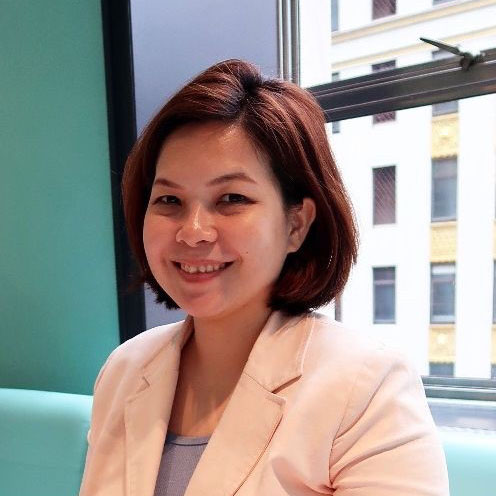Born in Cepu, a small town in Central Java, Indonesia, Daniel Murdiyarso grew up surrounded by teak forests. Although he had envisioned working in the forestry sector from a young age, he could never have imagined that he would dedicate 30 years of his life conducting scientific research on ecosystems, peatlands, mangroves, and climate change.
“Back then, I only associated forestry with commercial interests,” he said, admitting that he had little to no awareness around environmental issues when he was young.
Fast forward to 2022, when Murdiyarso became the first Indonesian scientist to receive an honorary doctorate from the Faculty of Agriculture and Forestry at the University of Helsinki, Finland, recognizing his significant contribution to forestry research on June 17.

Currently, he is a Principal Scientist at the Center for International Forestry Research- World Agroforestry (CIFOR-ICRAF) where he has been working since 2003, and a professor at the Department of Geophysics and Meteorology at the Bogor Institute of Agriculture (FMIPA – IPB) in Indonesia, where he has been teaching since 1997.
His journey has been an adventurous one. Much of his fieldwork has been conducted under high-risk conditions such as treading neck-high through muck and water in peatlands and mangrove forests across Indonesia where elephants, tigers, crocodiles and snakes abound to collect data to measure the carbon stocked in these ‘blue carbon’ ecosystems.
He recalls that he was one of the first-ever climate scientists at CIFOR-ICRAF. “These days, climate change has become a global priority. But when I first started, we had to push for climate change to be put on the agenda, as well as linking forestry to climate change.”
Murdiyarso has significantly contributed to the development of climate change research in Indonesia, as well as on the international stage. Over the past two decades, he has published more than 100 research works related to land-use change and biogeochemical cycles, climate change mitigation and adaptation. Throughout his career, he has received many prestigious awards such as this recent one, including the Ahmad Bakrie Award (2010), the Sarwono-LIPI Award (2018), and the Habibie Prize (2020). Since 2002, Murdiyarso has been an active member of the Indonesian Academy of Sciences.
Going forward, Murdiyarso hopes to use climate diplomacy to enhance the relations between Finland and Indonesia through his academic and research affiliations at the University of Helsinki, CIFOR-ICRAF, and FMIPA – IPB.
“The University of Helsinki is the oldest and largest public research university in Finland and IPB is one of the oldest universities in Indonesia. They both have a long history of forestry and agriculture education,” he said. “For me, [this honorary degree] marks a great beginning for scientific diplomacy and exchange.”
In particular, Murdiyarso believes that peatland restoration – one of his key research areas- can serve as the catalyst. Despite their different biophysical characteristics, the two countries can still benefit from having dialogue around sustainable peatland management.
“I learned that in the past, Finland emitted significant amounts of greenhouse gas from drained peatland and extraction to generate energy,” he said. “However, following the Paris Agreement, Finland has shared its long-term strategy laying out sustainable scenarios and impact assessments concerning the national carbon neutrality target set for 2035 and developments in greenhouse gas (GHG) emissions and removals by 2050.”
Policymaking is not foreign to Murdiyarso, who served as Indonesia’s Deputy Minister of Environment for two years from 2000-2002. As a Convening Lead Author of the IPCC Third Assessment Report and the IPCC Special Report on Land-use, Land-use Change and Forestry, he understands first-hand the crucial role of scientists in shaping public policy.
“As scientists in the modern era, we are not only producing numbers or knowledge. We need to get our messages out there too,” he said. “To do so, we need to serve as a bridge by building relationships with other key stakeholders in both the public and private sectors.”
Case in point: Murdiyarso has leveraged his decades of scientific and public policy experience to serve as one of the key architects behind the recent establishment of the World Mangrove Center Teluk Balikpapan (WMCTB) in East Kalimantan, Indonesia.
Indonesia is home to ¼ of all the mangrove forests in the world, which is why the country is spearheading a global role in mangrove research and management, including climate change mitigation and adaptation, biodiversity protection and ecosystem services.
“Indonesia is very lucky. Amid all the natural disasters and calamities, we are blessed with many things, including the mangrove ecosystem. We need to be wise about how to manage it as a national treasure, instead of only considering it as an economic asset.”
“All eyes are on Indonesia now, following the opening of this Center,” said Murdiyarso. “My hope is that WMCTB will help promote the importance of mangroves and its impact on climate change globally. In fact, mangrove forests store much more carbon than other terrestrial ecosystems, which means they will play an important role in fighting climate change.”
We want you to share Forests News content, which is licensed under Creative Commons Attribution-NonCommercial-ShareAlike 4.0 International (CC BY-NC-SA 4.0). This means you are free to redistribute our material for non-commercial purposes. All we ask is that you give Forests News appropriate credit and link to the original Forests News content, indicate if changes were made, and distribute your contributions under the same Creative Commons license. You must notify Forests News if you repost, reprint or reuse our materials by contacting forestsnews@cifor-icraf.org.










